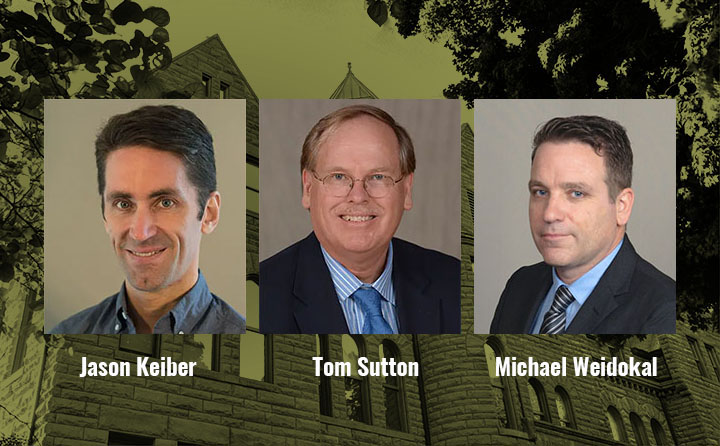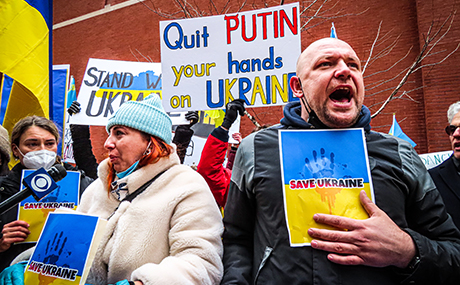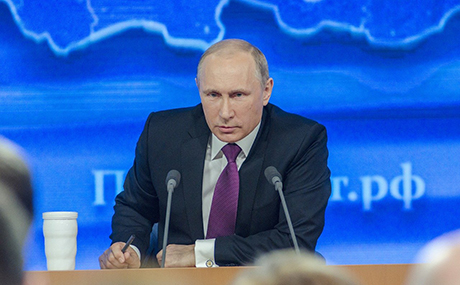 The Russian invasion of Ukraine has created what Baldwin Wallace international studies and national security professor Dr. Jason Keiber calls "unprecedented" and "destabilizing" times.
The Russian invasion of Ukraine has created what Baldwin Wallace international studies and national security professor Dr. Jason Keiber calls "unprecedented" and "destabilizing" times.
Keiber is one of three BW faculty who've been asked in recent days to interpret the fast-moving news on the war for Northeast Ohio media.
"When there is a large-scale conflict that is happening anywhere in the world, when a country's sovereignty is being challenged by another country with sophisticated military and nuclear power, it should be a sobering moment," Keiber told WOIO 19 News in the first of two in-depth interviews.

"In my field," Keiber says, "we thought great power wars might be a thing of the past, but [Russian President Vladimir] Putin showed he is willing to use significant military force without any provocation and in violation of international law.
Keiber says that aggression has been surprising because "some of Putin's chief security concerns, such as a bolder NATO and a unified democratic Europe, have come to pass because of the invasion."
In interviews for WEWS NewsChannel 5 and WTAM Radio, BW political science professor Dr. Tom Sutton looked at the Ukrainian resistance in the face of lopsided military odds.
"Russia has a large advantage in number of troops and weaponry, but do not underestimate the determination of Ukrainians to defend their homeland and independence at all costs," said Sutton, during a live interview with Newschannel 5, where he serves as political analyst.
In his second WOIO interview, Keiber responded to a French warning that the "worst is yet to come." According to Keiber, "The Russian military is resorting to more siege tactics. The civilian death toll is increasing, as is the number of refugees. It seems like Putin has maximalist objectives in Ukraine. He wants it all. But this could change."
On Friday, NATO resisted calls to enforce a no-fly zone. "Even though there might be a humanitarian urge to help militarily, the consequences for escalation would be tremendous," Keiber says.
BW international studies grad Michael Weidokal '94, executive director and founder of International Strategic Analysis, a global economic and geopolitical research firm, as well as a BW visiting professor, authored an analysis for cleveland.com/The Plain Dealer dissecting the impetus for and impact of the attack.
 "With the West distracted by worsening internal divisions, Putin has found the opportunity he had been waiting for to reverse what he views as decades of geopolitical reversals for his country," Weidokal explains.
"With the West distracted by worsening internal divisions, Putin has found the opportunity he had been waiting for to reverse what he views as decades of geopolitical reversals for his country," Weidokal explains.
"Russia, which has played such a key role in fomenting the political divisions in the United States and across the West, will be counting on these political divisions continuing, thus lessening the ability of the United States and its allies to respond to Russia's blatant invasion of a sovereign country."
Weidokal, who is not optimistic about the end result for a free Ukraine, also looks beyond the current conflict to Putin's next steps, the balance of power, world alliances and the significant impacts on the global economy.
"Oil prices have risen sharply and could rise further should the conflict escalate. This will fuel further inflationary pressures in the United States and around the world, potentially slowing what has been a robust economic recovery from the impact of the COVID-19 pandemic," he concludes.